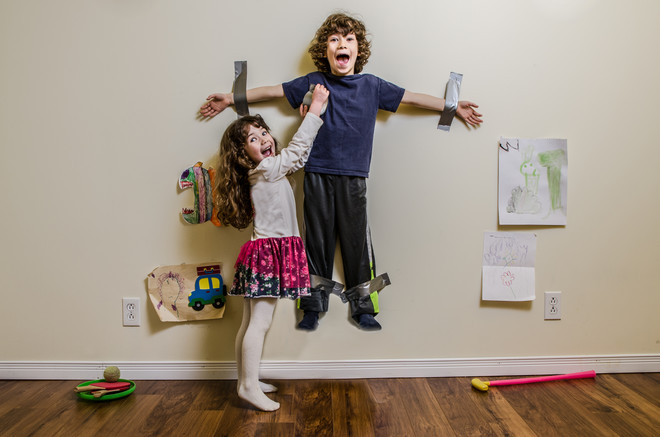Some psychologists say: Children do not need to punish. “Show him your disapproval, and then the child will understand that he is doing poorly,” they say. But sometimes the children were already so dissatisfied that they wanted to spit on parental approval. And what now for the belt? Back off! This is not our method. The punishment does not always have to be strict. And no, the child does not have to feel bad to realize his guilt. Here you have 10 unusual, and most importantly, humane ways. They will help the child understand what he has done wrong, and will tell you how to move in the right direction without feeling pain and humiliation. Photo: Getty Images
Photo: Getty Images
1. Involve, not expel
Instead of sending the child to hisroom or, even worse, put him in a corner, give him some creative task. Make some decoration for the house, arrange books and toys beautifully on a shelf or practice penmanship on a few pages.
2. let cool
If your child has done something wrong in the house, askhim to walk the dog outside. No dog? Let him run a few laps around the house. That way he'll cool down and maybe realize that he really was wrong.
3. Increase sleep time
Sometimes you can change your bedtimedepending on how the child behaved during the day. If the behavior was so-so, send the prankster to bed earlier than usual by 10-15 minutes, or as much as you think is right. And vice versa, when the child behaved well, let him play a little more before putting him to bed. Photo: Getty Images
Photo: Getty Images
4. Connect to work in the kitchen
You've already called and reminded me several times,to have the child home for dinner. And he was late again. Next time, make him responsible for setting the table. Just make sure his hands are washed and the food is not too hot, so that dinner does not end with burns.
5. The great power of practice
If your child is having problems in school due topoorly written homework or classwork, before you have a serious conversation, make sure he gets enough practice at home. Make several photocopies of the assignments and have your child handwrite them a few times. Make sure he spends a little extra time each day on his handwriting.
6. "Hold your tongue"
Parents often say this phrase to their children whenThey are rude or use strong language. So let them hold their tongues, literally – with their fingers. Just for a few minutes. Fun, but instructive.
7. Housework in return
Every time your child makes a mistakeIf your child is in a mess or forgets to do his or her chores, delegate your housework to him or her for the entire day. Washing dishes, cooking, clearing the table, watering plants, and other household chores that are appropriate for the child's age. Photo: Getty Images
Photo: Getty Images
8. Free Zone
The child loves to play war games, and here it isAnother favorite vase is already flying to the floor. Ask the little warrior to create a combat-free zone inside the house. Or ask him to cut out pictures of his favorite things from old magazines and paste them around the apartment. And then set a rule: no battles near the picture.
9. Set the timer
Children don't listen to you or spend too muchtime to fulfill your request? No need to remind them endlessly about the time. Just set a timer and warn them that if the signal sounds before they finish, they will lose cartoons/extra time to play or other privileges.
10. Let me choose the punishment
Ask the children to write down unusual punishments onpieces of paper, and then put the notes in a jar. Let the children choose their “fate” each time they misbehave by taking out one of the pieces of paper from the jar. Use these punishment ideas to teach your child discipline without humiliating them, but helping them use their time productively.









